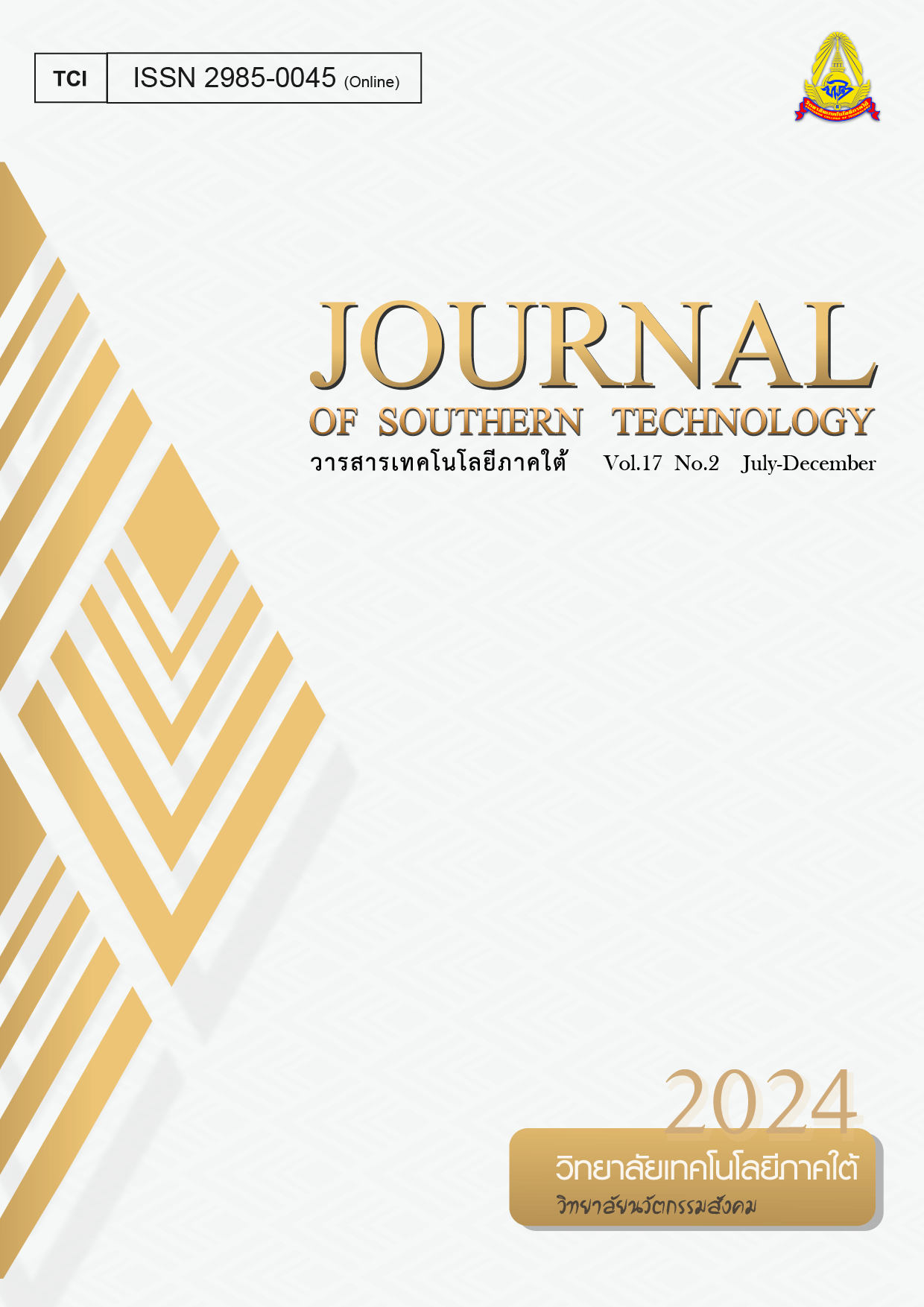The Effectiveness of Cognitive and Metacognitive Strategies in Learning English Vocabulary among Upper - Secondary Students in Three Southern Border Provinces of Thailand and Malaysia
Main Article Content
Abstract
The vocabulary was the main factor in learning languages. The learners who knew the various vocabulary learning strategies and understood the meaning and the form of the vocabulary could better communicate with others. This research investigated the effectiveness of cognitive and metacognitive strategy use on teaching vocabulary skills among learners in three Southern Border Provinces of Thailand and Malaysia. The participants were 197 high school students studying in three Southern Border Provinces of Thailand and the border states of Malaysia, obtained through the purposive random sampling. Subjects were divided into 48 high students, 76 medium students, and 73 low students based on their percentage of the vocabulary achievement test. As the purpose of this study was to know the effectiveness of cognitive and metacognitive strategies in learning vocabulary of upper – secondary students who have the different English ability in three southern border provinces of Thailand and Malaysia, vocabulary learning strategies questionnaires, vocabulary test, and the interview were employed to find out what cognitive and metacognitive strategies had effects on students’ vocabulary performance. The data were analyzed by using mean and standard deviation. The research hypothesis was tested by two ways Anova F-test. The F- test value of the relation between vocabulary learning strategies and countries was 2.16 with the significance of .05. The findings revealed that the scores of the participants were positively and significantly correlated with cognitive and metacognitive strategy use.
Article Details

This work is licensed under a Creative Commons Attribution-NonCommercial-NoDerivatives 4.0 International License.
-
Authors must agree to the journal publication rules and allow the editors to edit the manuscripts for publication.
-
Author’s right belongs to the author but Journal of Southern Technology holds the right of first publication and thus allow readers to use the article for the purpose of education but not commercial.
References
Anderson, N. J. (2008). Practical English Language Teaching: Reading. New York, NY: McGraw-Hill.
Asgari, A., & Ghazali, M. (2011). The type of vocabulary learning strategies used by ESL students in University Putra Malaysia. English Language Teaching, 4, 84-90.
Bennett, P. (2006). An Evaluation of Vocabulary Teaching in an Intensive Study Programme (Unpublished MA Thesis). The University of Birmingham, Birmingham. The United Kingdom.
Braze, D., Katz, L., Magnuson, J.S., Mencl, W.E., Tabor, W., Van Dyke, J.A., & Shankweiler, D.P. (2016). Vocabulary does not complicate the simple view of reading. Reading and Writing, 29, 435– 451.
Cook, L., & Mayer, R. (1983). Reading strategies training for meaningful learning from prose. In M. Pressley & J. Levin (Eds.), Cognitive Strategy Research: Educational Applications, 87–131. New York: Springer-Verlag.
Cravern, L. (2013). Vocabulary Learning Strategies. Retrieved February 2016 from https://tama.repo.nii.ac.jp/index.php.
Ghalebi, R., Sadighi, F., Bagheri, M. S., & Qian, M. (2020). Vocabulary learning strategies: A comparative study of EFL learners. Cogent Psychology, of EFL learners. Cogent Psychology, 7(1), 1824306. https://doi.org/10.1080/23311908.2020.182430
Gu, Y., & Johnson, R.K. (1996). Vocabulary learning strategies and language learning outcomes. Language Learning, 46(4), 643-679.
Hill, S. (2012). Developing early Literacy: Assessment and Teaching (2nd ed.). South Yarra, Vic. Eleanor Curtain Publishing.
Husin, M. Z. M., Rahim, N. F. A. A., Ali, Z., Alzeebaree, Y., & Bakar, N. A. (2022). Preferred vocabulary learning strategies among Malaysian Students. Research Journal in Advanced Humanities, 3(4), 80-98.
Macaro, E. (2006). Strategies for language learning and for language use: Revising the theoretical framework. The Modern Language Journal, 90(3), 320-337.
Rahimi, M., & Katal, M. (2012). Metacognitive strategies awareness and success in learning English as a foreign language: an overview. Procedia-Social and Behavioral Sciences, 31, 73 – 81.
Nacera, A. (2010). Language learning strategies and the vocabulary size. Procedia - Social and Behavioral Sciences, 2(2), 4021 – 4025.
Nation, P. (2001). Learning Vocabulary in Another Language. Cambridge: Cambridge University Press.
National Institute of Educational Testing Service. (2014). O-NET Score. Retrieved September 18, 2023 from http://www.niets.or.th/th/
Nosidlak, K.M. (2013). Vocabulary learning strategies of the advanced students. Journal of Language Teaching and Research, 4(4), 655-661.
Oxford, R. (1990). Language Learning Strategies. New York, Newbury House Publishers.
Schmitt, N. (2000). Vocabulary in Language Teaching. Cambridge: Cambridge University Press.
Sinatra, R., Zygouris, C. V., & Dasinger, S. (2011). Preventing a vocabulary lag: What lessons are learned from research. Reading & Writing Quarterly, 28(4), 333-334.
Steven, A. S., & Barbara, A. K. (2001). Word Power: What Every Educator Needs to Know About Teaching Vocabulary. Washington DC, National Education Association.
Pookcharoen, S. (2014). Thai EFL undergraduates’vocabulary learning strategies: perception and practice. Journal of Studies in the English Language, 6, 31-53.
Thantawan, K., Phattrawan, T., & Chamnein, C. (2008). Factors affecting english vocabulary skill of undergraduates at Prince of Songkla University, Pattani Campus. Asian Social Sciences Journal, 4(9), 12-17. https://doi.org/10.5539/ass.v4n9p12. [in Thai]
Thornbury, S. (2002). How to Teach Vocabulary. England: Pearson Education Limited. Ur Press.

